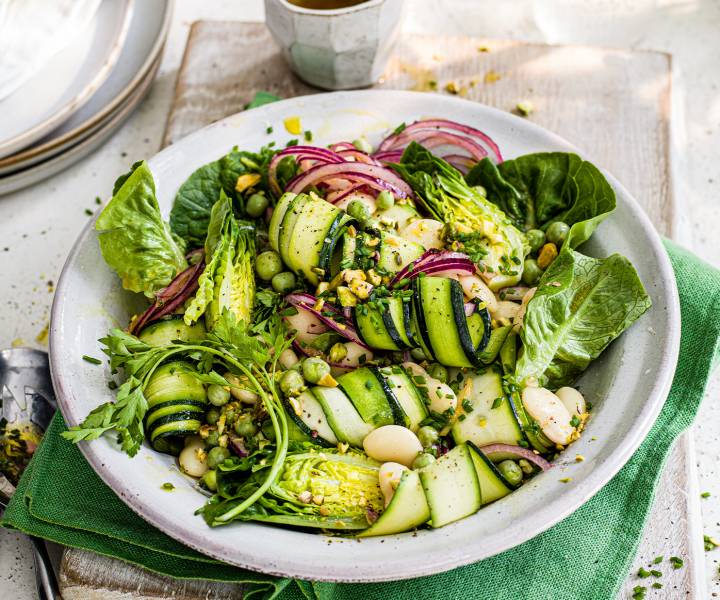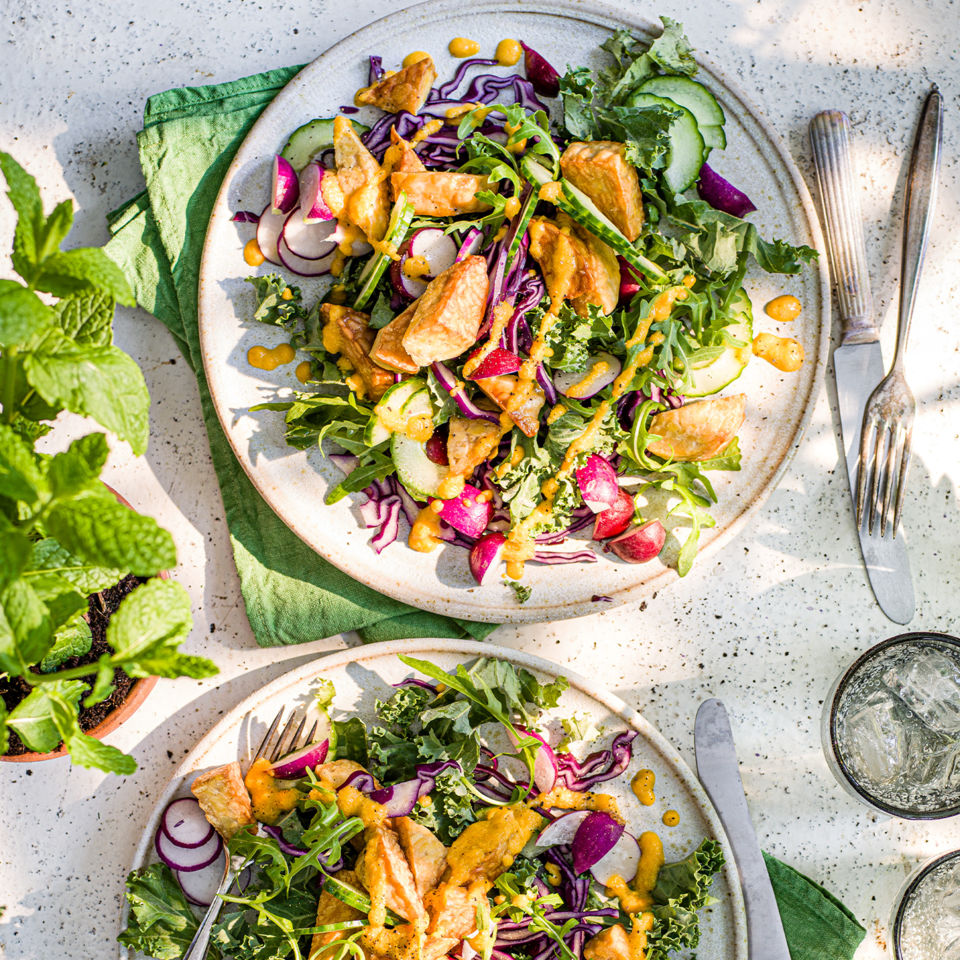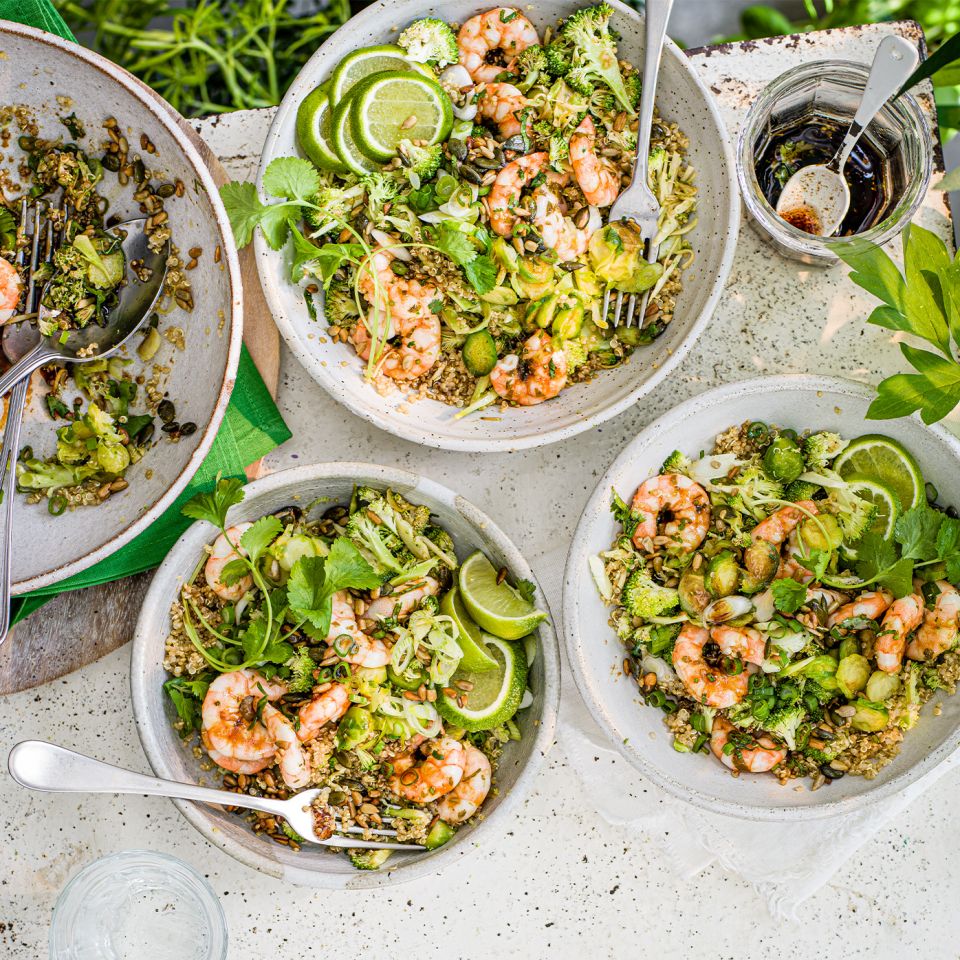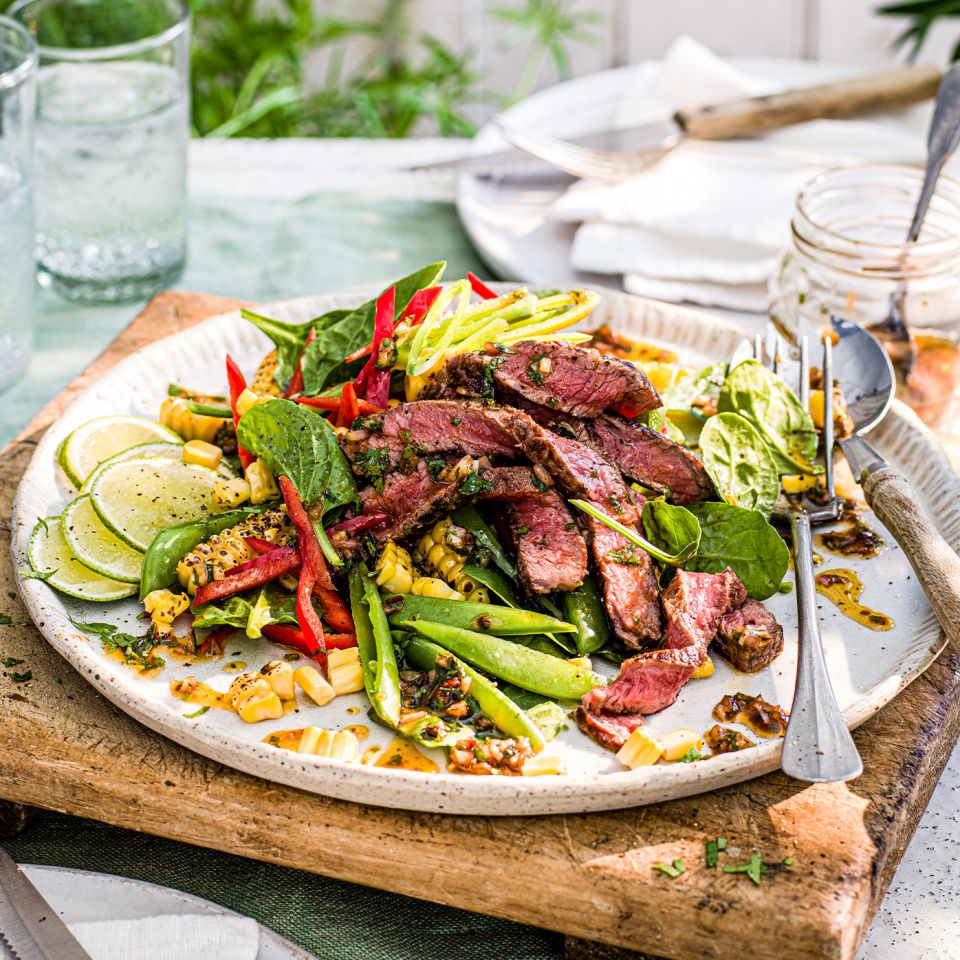Food
5 ways to make your salad super

Turn over a new leaf with crunchy, colourful plates of vegetables that offer a serious boost to your health. Louise Atkinson shares 5 ways to make your salads super...
Salads have come a long way since the days of limp lettuce with watery slices of cucumber. Whether you opt for a Waldorf, a Caesar, a niçoise or an Asian-infused slaw, you can be sure of a tantalisingly delicious bowl of crunch and flavour to meet your daily nutritional needs.
And by throwing together a wide assortment of different vegetables, leaves and herbs and eating them raw you will be enjoying all the extra health benefits these plants offer in their most natural state.
In fact, the benefits to be gained when vegetables are eaten raw means that most nutritionists recommend we eat a big fresh salad every single day. Here’s how to elevate any salad to super status.
1. Leaves
Leafy greens are packed with nutrients. Choose the darkest greens (Romaine or Little Gem rather than iceberg) or reds (radicchio or chicory) for the most benefits, and fill your plate with kale, watercress, rocket or spinach.

2. Colour (rainbow)
Colour indicates nutritional profile, so ensure a mix of greens (leaves, cucumber, peas, fresh herbs), reds (peppers, tomatoes), oranges (carrots) and purples (beetroot, red cabbage) on your plate.

3. Cruciferous
Add thinly sliced broccoli or shredded cabbage, Brussels sprouts, kale or rocket – there’s a wealth of evidence that shows that this family of vegetables has cancer-fighting properties.
4. Dressing
A simple mix of vinegar or lemon juice with olive oil or a nut oil will boost absorption of nutrients and prime digestive enzymes.

5. Fats, oils and seeds
Adding healthy fats in the form of avocado, nuts and seeds provides omega-3 fatty acids (great for heart health) and aids absorption of fat-soluble vitamins (A,E, D and K).












